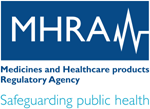 |
Medicines
and Healthcare products Regulatory Agency Market Towers |
| Mr Charles Medawar |
General
enquiries Telephone 020 7273 0000 Fax 020 7273 0353 E-mail [email protected] www.mhra.gov.uk Direct
line: 020 7084 2664 Email: [email protected] 9 November 2005 |
| Dear Mr Medawar, RE: EFEXOR & EFEXOR XL (venlafaxine): PL 00011/0223-0224 & 00011/0199-0201 Advertisement in BMJ of 16 April 2005 Thank you for your letter of 17 April 2005 regarding the promotion of Efexor. We have been in correspondence with the advertiser and have completed our investigations. The advertisement that was the subject of the complaint has been withdrawn. The MHRA and Wyeth have agreed to publish a joint statement in the HSJ and BMJ as enclosed. A summary of the outcome of this complaint is also attached. This will be published on our website within the next two weeks. Thank you for bringing this matter to our attention Yours sincerely Dr Nageen Hashmi SUMMARY REPORT FOR PUBLICATION Efexor (venlafaxine), Healthcare professional advertisement, April 2005 Two people complained to the MHRA about an advertisement provided to healthcare professional by Wyeth for their product, Efexor. The advertisement appeared in the BMJ on 16 April 2005 and in the April issue of Health Service Journal. The complainants were concerned that the journal advertisement failed to highlight sufficiently well new prescribing information for Efexor following the imposition of an urgent safety restriction (USR). The MHRA vetted this advertisement prior to its publication in January 2005. The MHRA and Wyeth agreed to publish a joint statement regarding this case. Date case raised: 17 April 2005 Joint statement for publication in the HSJ. The MHRA and Wyeth have agreed to a joint statement regarding the promotion of Efexor XL and the position on advertising of medicines following a new safety issue. In April an advertisement for Efexor XL appeared in this journal. The advertisement had been cleared for publication by the MHRA in January 2005. The MHRA received two complaints in relation to the advertisement, which argued that the advertisement failed to promote rational use as it did not give sufficient prominence to the prescribing restrictions for the product imposed in December 2004 (and previously communicated by Wyeth through a widely distributed Dear Doctor letter). The MHRA agreed with the complainants and changed its view on the advertisement, asking Wyeth to cease use of the advertisement. Wyeth promptly agreed to do so. The case raised important and novel issues around the advertising of medicines following new safety information. The MHRA considers that where significant new safety issues arise resulting in a change to product information, for example as a result of an Urgent Safety Restriction, the body of an advertisement should be amended to ensure that any healthcare professional reading it will be informed or reminded of the restriction to the licence and directed to where they may find further information should they wish. Subsequent to the Efexor case, the MHRA reached a voluntary agreement with all manufacturers of COX-2 inhibitors that their advertising would include information on the recent advice provided by the MHRA regarding the safe use of their products. This principle will be reflected in the revised version of MHRA's Blue Guide on advertising of medicines. Current prescribing information for Efexor XL is available at www.medicines.org.uk. Should you have any further questions about Efexor XL please contact Wyeth on 01628415330.Wyeth and MHRA |